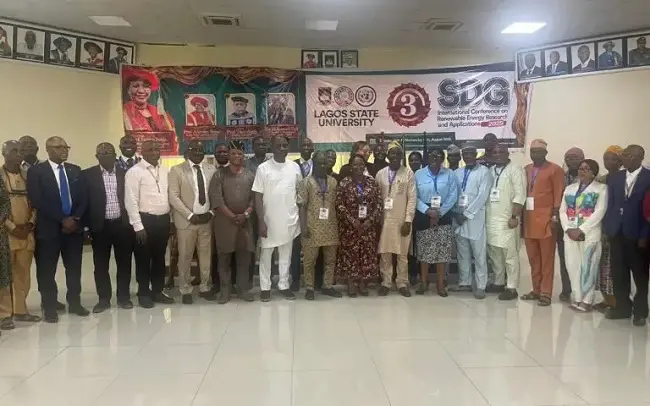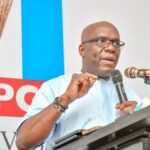Olusegun Ariyo
The Deputy Vice-Chancellor (DVC), Administration, Lagos State University (LASU), Prof. Adenike Boyo, on Tuesday, August 26, 2025, urged the Nigerian government to adopt the latest renewable energy technologies, to mitigate climate change.
Boyo made the appeal at the 3rd LASU Sustainable Development Goals (SDGs) International Conference on Renewable Energy Research and Application 2025 at the university’s main campus in Ojo, Lagos.
.
“Nigeria, striving to meet growing energy demands and mitigate climate change, must actively adopt latest advancements in renewable energy technologies.
“These trends offer real solutions for improving electricity access, reliability, environmental health, and economic resilience.
“To lead this transformation, Nigeria must invest in research and development, update regulations, attract investment, and build human and physical capacity.
“Strategic integration of these innovations can transform Nigeria into a clean energy leader in Africa,” Boyo said.
While taking on the theme, she said that the lecture would explore emerging trends in the global renewable energy landscape and their applicability in Nigeria, such as Advanced Solar Photovoltaics.
“Others are Floating Solar Farms, Wind Energy (offshore wind, vertical axis turbines) and Sustainable Biofuels (algae-based, waste-to-energy),” she said.
The DVC noted that these emerging trends and technologies offered solutions to advanced energy storage which could address solar and wind intermittency.
She added that while innovative solar designs reduced land requirements, sustainable bio-fuels from waste could tackle both energy and waste management challenges.
“By adopting these innovations, Nigeria can enhance grid stability, expand energy access to underserved areas, and promote sustainability in a cost-effective manner,” she said.
Boyo noted that one of the challenges Nigeria was facing in adopting emerging trends was technological immaturity and adaptation.
She added that many technologies were still maturing and needed local adaptation.
“There is need for specialised infrastructure and expertise: Nigeria lacks the grid, ports and logistics for large-scale offshore and storage deployment.
“There is a need for an evolvement of existing frameworks and laws to support new energy models,” she said.
The DVC, however, recommended that Nigeria should partner with global firms, offer tax incentives and support.
“Prioritise Research and Development by finding local innovations and adapting global technologies to local needs.
“Create flexible policies that support integration of new technologies,” she recommended.
Earlier in her welcome address, the Vice-Chancellor (VC), LASU, Prof. Ibiyemi Olatunji-Bello, said that the conference was significant for the people and governments of Nigeria.
The Vice-Chancellor, represented by the DVC, Administration, Prof. Boyo, said: “Renewable energy, also called green energy, is energy from renewable, natural resources that are replenished on human scale.
“The most widely used renewable energies are the solar, the energy of the wind, hydropower, the power energy and geothermal power.
“They are natural and self-replenishing and usually have a zero or no carbon footprint.”
She added that as part of the global efforts to limit climate change, most countries had committed to next-level greenhouse gas emissions in practice.







